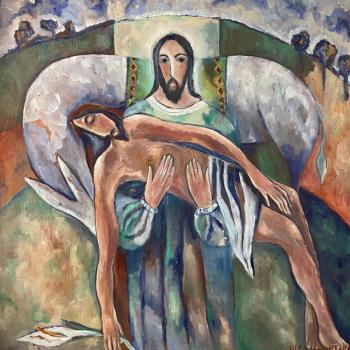 We were visiting with friends this weekend and comparing notes about worship. One of our friends noted that a non-denominational church near them offered an “informal” worship service free of liturgical forms. “We just can’t compete, given the formality of our approach to worship,” our friend observed.
We were visiting with friends this weekend and comparing notes about worship. One of our friends noted that a non-denominational church near them offered an “informal” worship service free of liturgical forms. “We just can’t compete, given the formality of our approach to worship,” our friend observed.
I can’t speak for my Christian sisters and brothers who favor less liturgical approaches to worship. But those of us who use liturgical forms should never buy into the logic that our approach is “formal,” as contrasted with “informal.”.
Why?
One:
We will never compare favorably with other approaches to worship, if those are the criteria we use. After all, we live in a culture that is increasingly bereft of rites of passage and ceremony.
We have ceremonies, of a sort, of course, because we can’t live without them. But — with notable exceptions — we live in a world that prefers to invent them “on the fly.”
Two:
Properly understood and performed, the liturgy has a power and drama all its own that is rooted in millennia of reflection on the saving work of God. The liturgy, while “scripted” can and should have its own attraction and power.
How could a narrative stretching across the history of human existence and longing for a divine word be boring — unless we have succeeded in killing the drama inherent in the story?
Three:
More importantly, ours is not a formality for formality’s sake. The liturgy is sacred space.
It is a space that ushers the worshipper into the presence of God. And beginning with our baptisms the liturgy signals the Christian’s awareness that the world is not what we think it is.
Conclusion:
The next time someone complains that your approach to worship is too “formal,” by all means, ask yourself, “Have we smothered the drama of the saving work of Christ?”
But don’t buy into the, “we’re formal, they’re informal” comparison.
That isn’t the issue and if we don’t understand that, it’s a small wonder why people don’t worship with us.












